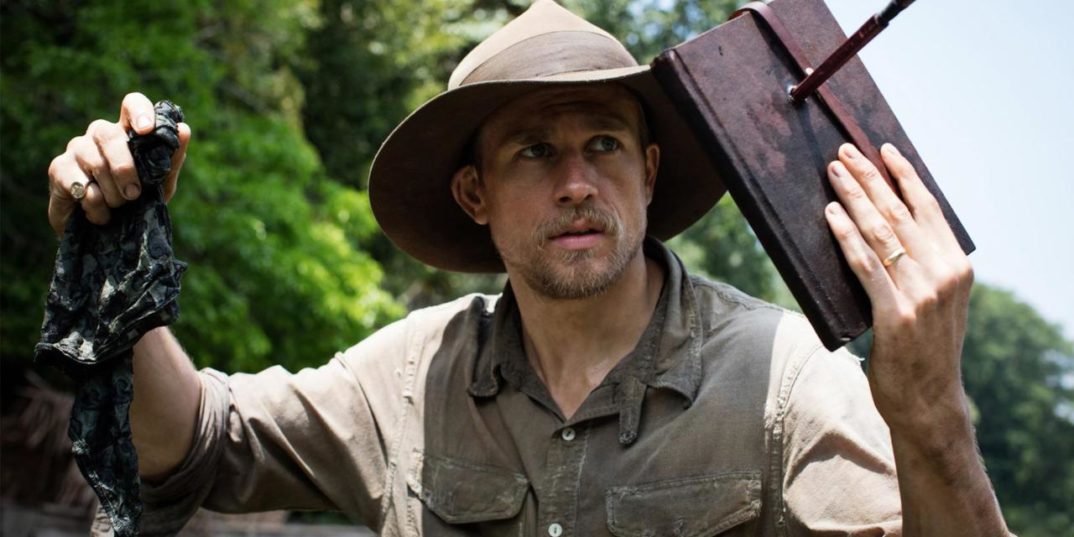Epics are notoriously difficult to translate to film. Not only do epic stories usually completely eschew the traditional three act structure that has become the bedrock of cinematic narrative, but they also tend to deal with such grand sweeping themes and such disparate plot points that creating a cohesive whole over the course of one film’s runtime is immensely difficult. The Lost City of Z isn’t so much an epic adaptation—though it is based on a book of the same name—as it is the translation of one man’s life story into a collection of thematic remembrances, not so much a character’s arc as it is a study of the ways a person can be shaped and molded by the experiences of a lifetime. And in that attempt, it largely succeeds, and an epic is born from those foundations.
In the early twentieth century, Percy Fawcett (Charlie Hunnam) is a British soldier of considerable ability but of low rank and little awarded distinction, primarily due to his illegitimate birth by a father who squandered his family’s name and fortune. Percy is offered the opportunity to map an area of the Amazon, so that the British Empire would have a greater understanding of the area and, in exchange, would offer Percy deserved distinction and a renewed place in the higher echelons of society. During the voyage, Percy and his confederates (Robert Pattinson and Edward Ashley) come across archeological indications that there may be a lost civilization within the dense jungle, and Percy makes it his life’s obsession to find this lost city he dubs “Z.”
The number of levels that the film functions on thematically is staggering. What starts as a clear story of redemption and proving one’s own worth soon becomes a tug of war between familial life and personal ambition. A quest to map out a remote and “savage” part of the world evolves into one man’s understanding of the pettiness of honorary distinctions in light of the vast diversity and intelligence of peoples the British Empire deems lesser. It’s a story that simultaneously works as a gateway into the mind of a singularly entranced man and a window to a world of empathy and communion that serves to be as much of a lesson to modern audiences as it was to Fawcett himself. All of this is communicated through excellent performances and gorgeous cinematography that captures the lush Amazon in perfect conjunction with the human drama.
This begs the question of whether the film is attempting too much, and maybe it is, just a little. For thematically rich as the narrative and performances are, it can’t help but feel that a tighter focus would have made certain moments have more emotional impact. Percy Fawcett’s wife, Nina (Sienna Miller), feels particularly underdeveloped, especially as the film alludes to parallels between Percy’s cultural enlightenment and a pursuit of gender equality within British society. There is also an entire act devoted to Percy’s involvement in the First World War, which does serve a vital narrative purpose, but also kills the pacing and could have been better implemented as a footnote rather than a chapter.
From ambition alone, though, The Lost City of Z is stunning, and the skill with which writer and director James Gray has brought this story to life is nothing to diminish. So rarely do films aim so loftily and come so incredibly close to realizing such heights. In a sense, Gray proves himself a peer to Percy Fawcett in this way; regardless of whether or not The Lost City of Z provides the answers its pursuers seek, the journey to find Z provides enough meditations for a lifetime.













